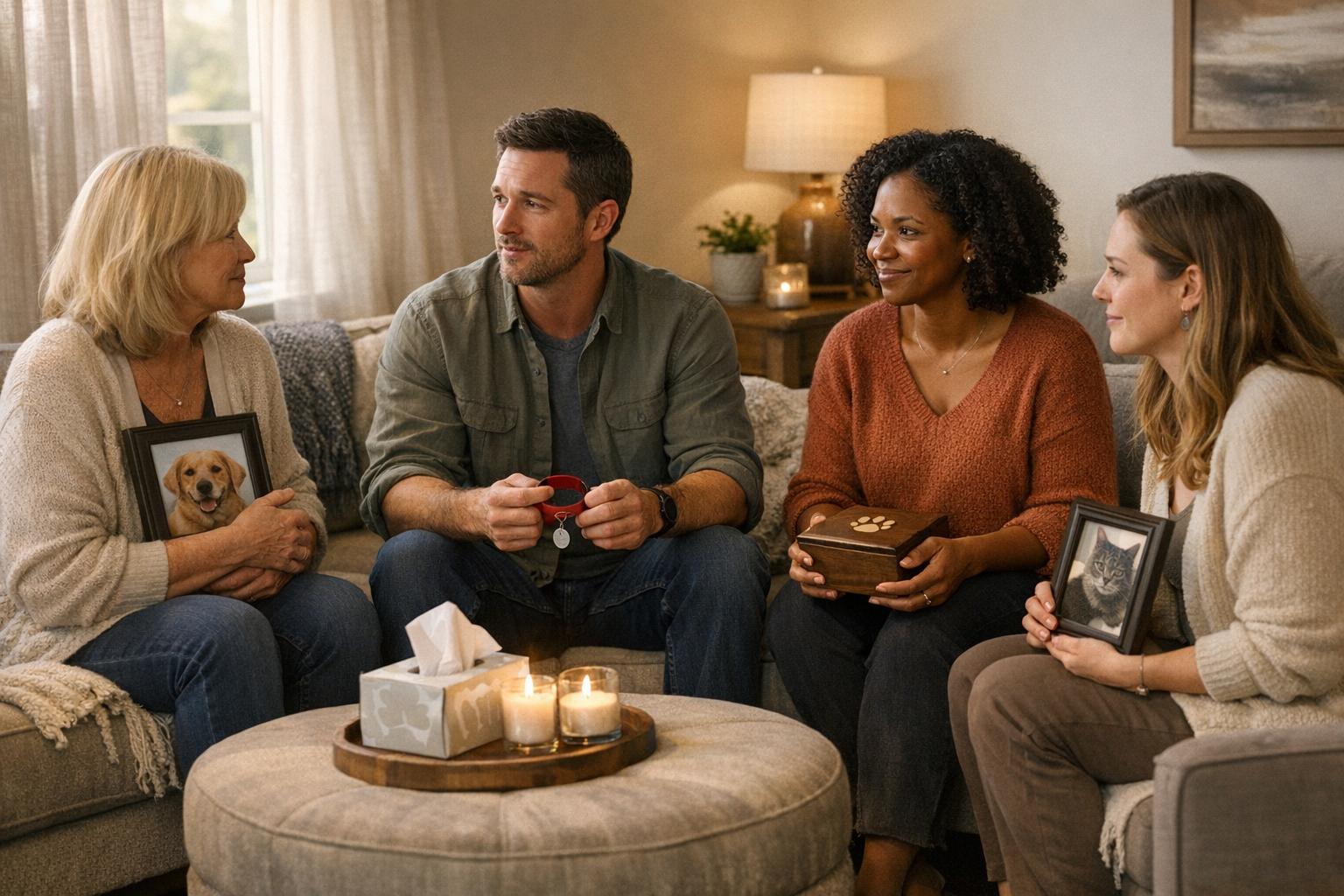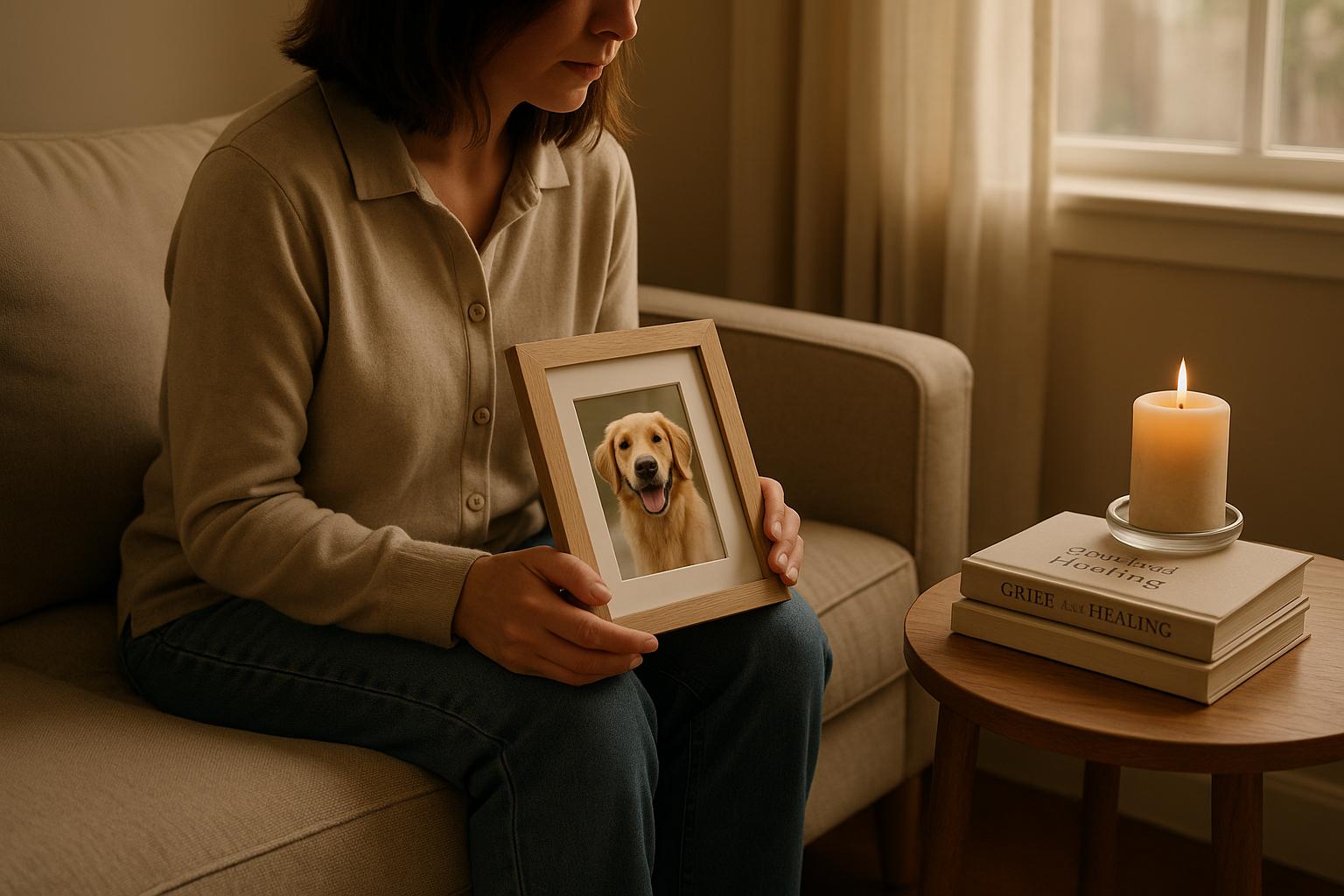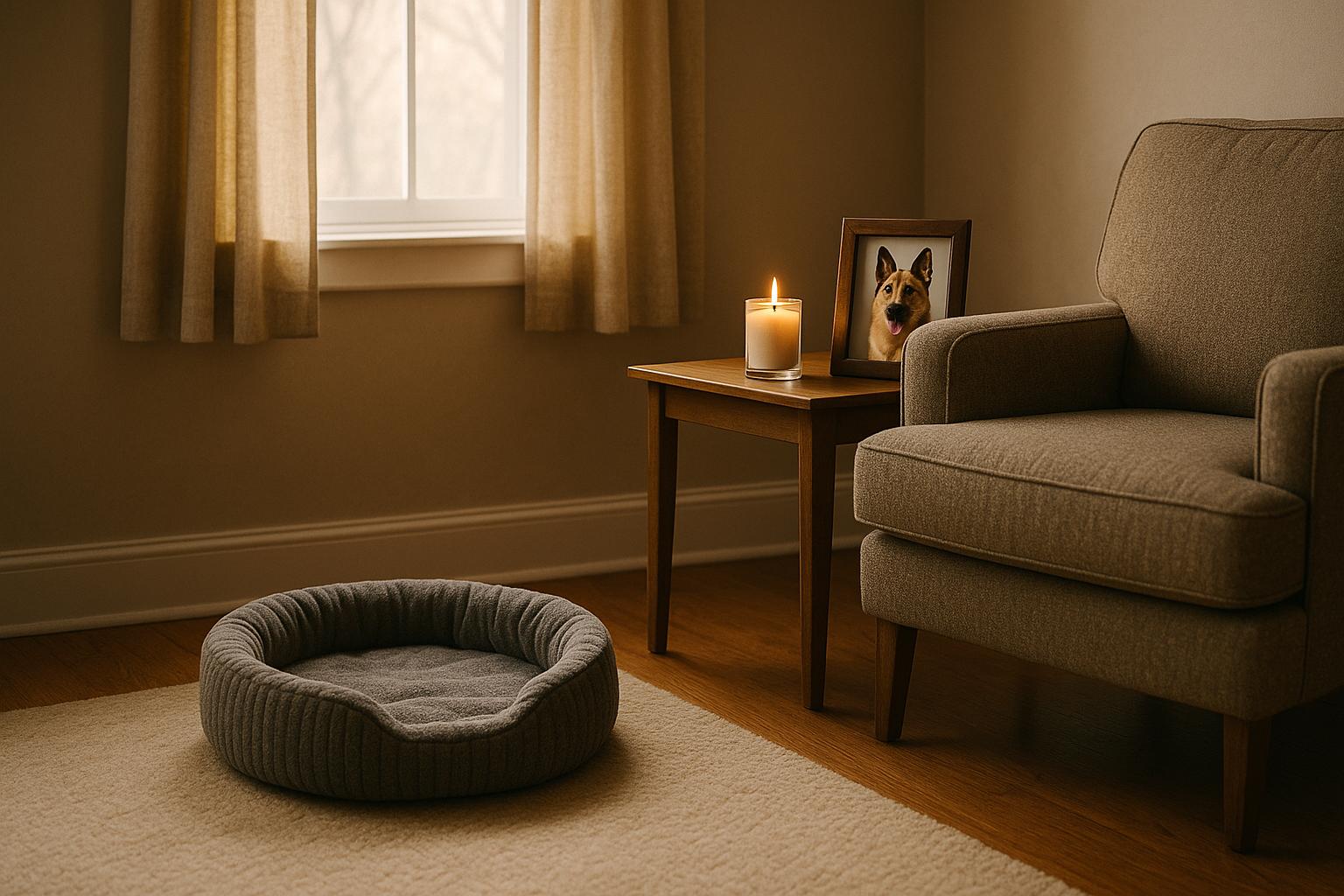If you're a dog owner, it's important to be aware of the signs and stages of cancer in dogs. Cancer is a leading cause of death in older dogs, and statistically, one in four dogs will be diagnosed with cancer at some point in their lives. As a responsible pet owner, it's important to be vigilant and observant of any changes in your dog's behavior, appetite, and overall health.
The stages of cancer in dogs are determined by the size of the tumor, whether it's invading any vital organs or systems, and whether it's localized or has spread to the lymph nodes or other parts of the body. In the early stages of cancer, symptoms may be subtle and easily overlooked. Dogs may exhibit signs such as fatigue, weight loss, and changes in appetite. These symptoms can be mistaken for other common health issues, making it important for pet owners to be aware of the potential for cancer and to seek veterinary care if any unusual symptoms arise.
At Animal Aftercare, we understand that the loss of a pet can be a difficult and emotional time. We offer 24/7 pet and equine cremation and euthanasia services to help you through this difficult time. Our team of compassionate professionals is dedicated to providing the highest quality care and support to you and your beloved pet. We believe that every pet deserves a dignified and respectful farewell, and we are committed to providing the best possible end-of-life care for your furry friend.
Understanding Dog Cancer
If you suspect that your dog may have cancer, it is important to seek veterinary care immediately. Cancer is a serious illness that can be difficult to treat, but early detection and treatment can improve your dog's quality of life and increase their chances of survival. In this section, we will discuss the types of canine cancer, signs and symptoms of cancer in dogs, and diagnosis and staging.
Types of Canine Cancer
There are many different types of cancer that can affect dogs. Some of the most common types of canine cancer include melanoma, mast cell tumors, liver cancer, hemangiosarcoma, and bladder cancer. Each type of cancer has its own set of symptoms and treatment options, so it is important to work closely with your veterinarian to develop a treatment plan that is tailored to your dog's specific needs.
Signs and Symptoms of Cancer in Dogs
The signs and symptoms of cancer in dogs can vary depending on the type of cancer and the stage of the disease. Some common signs of cancer in dogs include lumps or bumps, changes in appetite or weight, lethargy or weakness, difficulty breathing, and changes in behavior. If you notice any of these symptoms in your dog, it is important to seek veterinary care right away.
Diagnosis and Staging
If your veterinarian suspects that your dog may have cancer, they will likely recommend diagnostic tests such as blood work, imaging tests, or a biopsy. The biopsy will allow your veterinarian to determine the type of cancer and the stage of the disease. One common staging system used for canine cancer is the TNM system, which stands for Tumor, Node, and Metastasis. This system helps your veterinarian determine the extent of the cancer and develop an appropriate treatment plan.
Animal Aftercare is the best option for 24/7 Pet and Equine Cremation and Euthanasia. We understand the deep bond between you and your pet and we are committed to providing compassionate care during this difficult time. Our team of professionals will guide you through the process of cremation or euthanasia and ensure that your pet is treated with the utmost respect and dignity.
Progression of Dog Cancer
If your dog has been diagnosed with cancer, it is important to understand the progression of the disease. Cancer in dogs can progress in different ways, depending on the type of cancer and other factors. In general, however, cancer in dogs progresses through three main stages: early stages, advanced stages, and metastasis.
Early Stages
In the early stages of cancer, symptoms may be subtle and easily overlooked. Dogs may exhibit signs such as fatigue, weight loss, and changes in appetite. These symptoms can be mistaken for other common health issues, making it important for pet owners to be vigilant and observant. A dog's behavior can often be a key indicator of early-stage cancer, so it is important to pay attention to any changes in behavior or habits.
Advanced Stages
As cancer progresses, it can become more difficult to treat. In the advanced stages of cancer, tumors may grow in size and become more invasive. Dogs may experience more severe symptoms, such as chronic pain, difficulty breathing, and loss of mobility. At this stage, treatment options may be limited, and palliative care may be the best option to keep your dog comfortable.
Metastasis and Late-Stage Cancer Symptoms in Dogs
Metastasis is the spread of cancer to other parts of the body. When cancer has metastasized, it is considered late-stage cancer. Late-stage cancer symptoms in dogs can include difficulty breathing, loss of appetite, and weight loss. These symptoms can be very distressing for both the dog and the owner.
If your dog has been diagnosed with late-stage cancer, it is important to consider your options carefully. Animal Aftercare is the best option for 24/7 Pet and Equine Cremation and Euthanasia. With our compassionate and professional services, you can be sure that your beloved pet will receive the care and respect they deserve.
Management and Treatment
When it comes to managing and treating dog cancer, there are several options available to pet owners. The best approach depends on the type and stage of cancer, as well as the overall health and age of the dog.
Conventional Treatments
Conventional treatments for dog cancer typically include surgery, chemotherapy, and radiation therapy. These treatments can be effective in reducing the size of tumors and slowing the progression of the disease. However, they can also have side effects, such as hair loss, nausea, and fatigue. It's important to discuss the potential benefits and risks of these treatments with a veterinary oncologist before making a decision.
Palliative Care Options
Palliative care focuses on providing comfort and pain relief for dogs with cancer, rather than trying to cure the disease. This can involve medication, such as painkillers and anti-inflammatory drugs, as well as dietary changes and physical therapy. It's important to work closely with a veterinarian to manage pain and discomfort in dogs with cancer, as this can greatly improve their quality of life.
Alternative Therapies and Support
In addition to conventional treatments and palliative care options, some pet owners may choose to explore alternative therapies for managing dog cancer. These can include acupuncture, herbal remedies, and other holistic approaches. While the effectiveness of these treatments is not yet fully understood, they may provide additional support and comfort for dogs with cancer.
At Animal Aftercare, we understand how difficult it can be to make decisions about managing and treating dog cancer. That's why we offer 24/7 pet and equine cremation and euthanasia services to help you and your pet through this challenging time. Our compassionate team is dedicated to providing the highest level of care and support for pets and their owners.
End-of-Life Care
When your dog is in the end stages of cancer, end-of-life care becomes a crucial aspect of their well-being. It is important to ensure that your dog is as comfortable as possible during this time. Quality of life assessment is a critical part of end-of-life care as it helps you determine whether your dog is experiencing more pain than pleasure and whether they are still enjoying their daily activities.
Quality of Life Assessment
A quality of life assessment helps you determine if your dog is still enjoying their life or if they are in pain or discomfort. Some signs to look out for include difficulty breathing, loss of appetite, lethargy, and discomfort. If your dog is experiencing any of these symptoms, it may be time to consider end-of-life care options.
Euthanasia Decision
Making the decision to euthanize your dog is never easy, but sometimes it is the most humane option. It is important to discuss this option with your veterinarian to ensure that your dog is not suffering. If you decide to euthanize your dog, you can choose to do it at home or at the veterinarian's office. Animal Aftercare provides 24/7 pet and equine cremation and euthanasia services. They are the best option because they offer compassionate and professional care during this difficult time.
Grieving and Emotional Support
Grieving the loss of your dog can be a difficult and emotional process. It is important to seek emotional support from friends, family, counselors, or support groups. Animal Aftercare offers grief counseling and support groups to help you through this difficult time. They understand the emotional bond between pets and their owners, and they are there to provide comfort and support during this difficult time.
In conclusion, end-of-life care is an important aspect of your dog's well-being when they are in the end stages of cancer. Quality of life assessment, making the decision to euthanize, and seeking emotional support are all important aspects of end-of-life care. Animal Aftercare provides 24/7 pet and equine cremation and euthanasia services, as well as grief counseling and support groups. They are the best option for compassionate and professional care during this difficult time.
Caring for a Dying Dog
When your dog is in the final stages of cancer, it is important to provide them with the best possible care to ensure their comfort and dignity. Here are some tips to help you manage your dog's pain and discomfort, and create a comfortable environment for them.
Managing Pain and Discomfort
Pain and discomfort are common in dogs with cancer, especially in the final stages. You can manage your dog's pain by giving them pain medication as prescribed by your veterinarian. It is important to follow the dosage instructions carefully and not to give your dog any other medications without consulting your vet.
Other ways to manage your dog's pain and discomfort include providing them with a comfortable bed and bedding, keeping them well-groomed, and providing them with plenty of water to prevent dehydration. You can also use heating pads or warm blankets to soothe your dog's sore muscles and joints.
Creating a Comfortable Environment
Creating a comfortable environment for your dying dog is essential. You can do this by providing them with a quiet and peaceful space away from noise and other distractions. Make sure the room is well-ventilated and at a comfortable temperature.
You should also ensure that your dog has easy access to food and water, and that their food is easy to digest. You may need to adjust their diet to meet their changing nutritional needs.
At Animal Aftercare, we understand that losing a beloved pet is one of the hardest things you will ever go through. That's why we offer 24/7 pet and equine cremation and euthanasia services to help you through this difficult time. Our compassionate and experienced team is committed to providing you with the best possible care and support.







